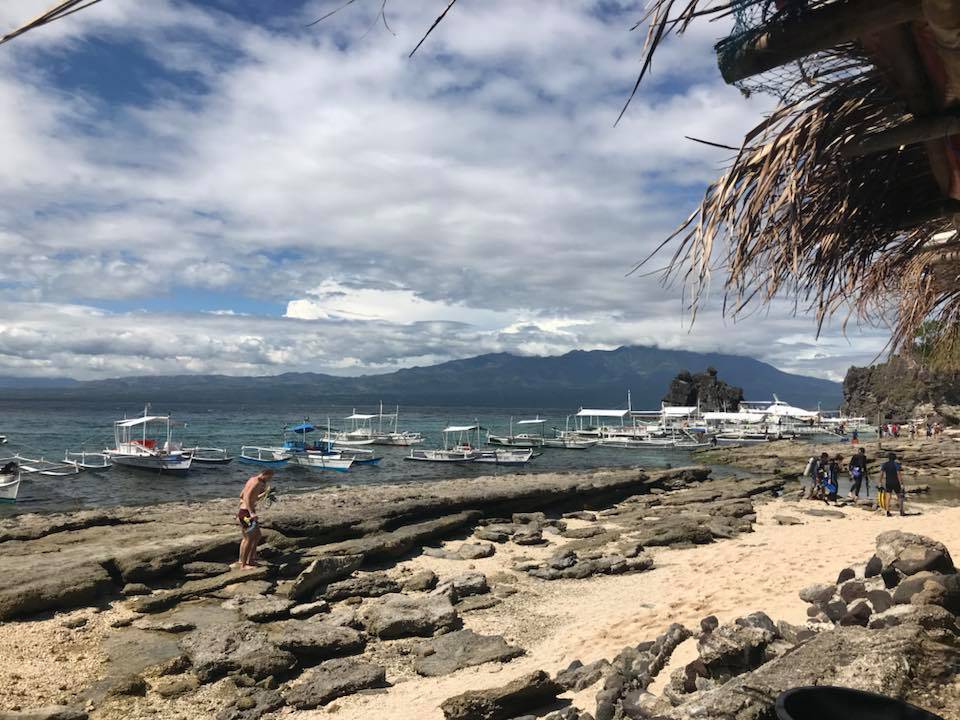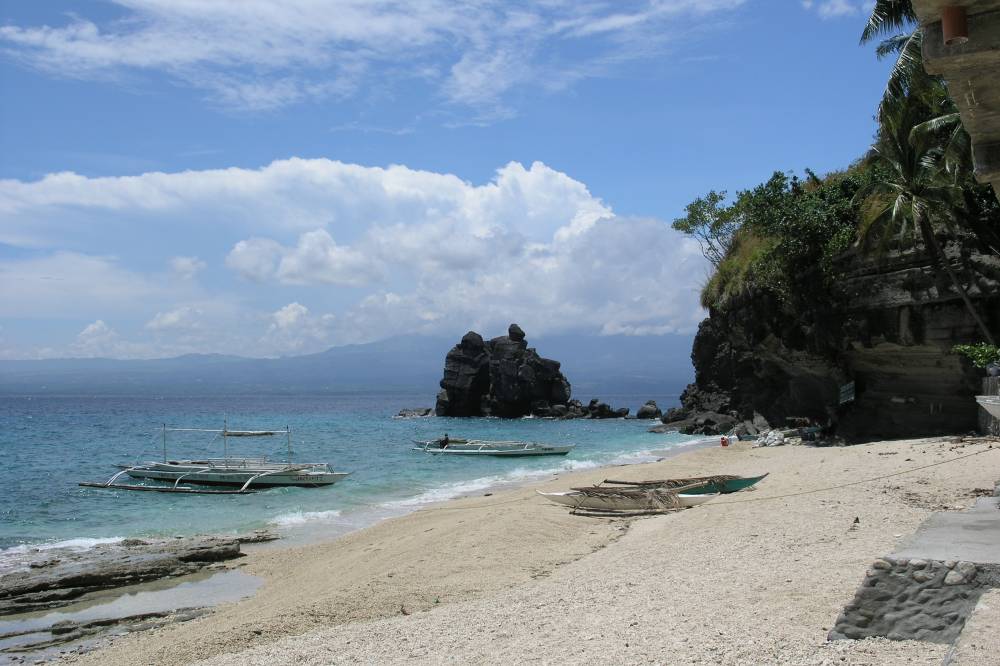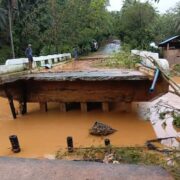DENR agency halts jetty port project on famed Apo Island

DUMAGUETE CITY—The Biodiversity Management Bureau (BMB) of the Department of Environment and Natural Resources (DENR) has reversed the approval and environmental compliance certificate by DENR’s Environmental Management Bureau that enabled the construction of a jetty port in the internationally renowned Apo Island in Dauin, Negros Oriental.
DENR Assistant Secretary for Biodiversity Marcial Amaro Jr. issued a cease-and-desist order (CDO) on the construction of a jetty port funded by the Dauin municipality as a “precautionary measure against the continuous irreparable damage to … the coastal ecosystems and its marine resources.”
The CDO was dated June 5, but the local media was only able to get a copy on July 16.
The BMB “strongly recommended discontinuing the project” at its current site, which is within the Strict Protection Zone of the Apo Island Protected Landscape and Seascape (AIPLS). It also warned of the risk the jetty port project poses to the “richness of its marine habitat and resources.”
The jetty port project, which was completed in May, covers more than 280 square meters in the Apo Island protected area, which spans 692 hectares of land and sea.
Apo Island is touted as the world’s top 5 scuba diving spots, as it is home to about 400 species of coral, of the country’s 421 documented species 88 of coral; and home to over 615 species of fish.
“It is important to uphold the principle that the AIPLS is designated for biodiversity conservation, and must remain protected from unnecessary and potentially harmful human interventions,” the BMB decision read.
When reached for comment on Sunday, Dauin Mayor Galicano Truita, the main proponent of the project, said he has no knowledge yet of the BMB order.
“I [am] not aware [of] that information yet as of this time,” Truita said.
He expressed thanks for the “advance information” and said he might be able to comment after he receives the communication from the DENR.
Dire consequences
The investigation found that a full Environmental Impact Assessment should have been required as the project has consequences on the habitat such as the coral reefs, seagrass beds and mangroves; on the natural limestone formation; the behavior and breeding cycles of the critically endangered marine species, like hawksbill turtle, green sea turtle and jacks; on fish migration routes and breeding grounds; and on the livelihood of the residents engaged in fishing and tourism.

Amaro also recommended the restoration of the Apo Island Chapel to its original location, which was demolished in September 2024 to give way to the construction of the jetty port, stressing that the chapel, “built by community ancestors … remains a site of deep historical, cultural, and spiritual value.”
Amaro noted that even the popular dive site across the church is named “Chapel Point” in honor of the “chapel’s cultural imprint on both land and sea.”
The BMB recommended to strictly enforce penalties and “initiate appropriate legal action” against the project’s proponent for violations of the prohibited acts stipulated in the National Integrated Protected Areas System Act.
Sound alternative
The BMB found that the municipality of Dauin did not file for a Special Use Agreement in Protected Areas despite the terminal building being “almost-completed” that time. The terminal was eventually inaugurated by the municipal government in May this year.
The Dauin local government led by Truita initiated in 2022 the construction of a jetty port to make the docking of pump boats easy. The BMB, however, said strengthening instead the implementation of existing regulations—such as time restrictions for docking and the mandatory use of mooring buoys —offers a “more sustainable and environmentally sound alternative.”
He also cited the position statement of the Sustainable Environment Alliance for Negros Island (SEAN), and letters from Silliman University President Betty Cernol-McCann last year for their “relevance and the scientific expertise” they represented.
“Science-based insights from the academe, particularly AIPLS-Protected Area Management Board (PAMB) members who are marine experts, should have been sought to guide early precautionary measures,” Amaro wrote in the decision. “These expert recommendations could have helped prevent irreversible damage now observed in the island’s rocky limestone terrain.”
No consultation
The BMB also found that construction activities on Apo Island began without public consultation.
Other violations of the stipulated “prohibited acts” within the AIPLS included jackhammering of natural limestone formations, the demolition of the chapel and construction of an Adoration Chapel—without the needed clearances and permits.
“This is a big win for the environment, especially for the marine biodiversity in Apo Island,” said Dr. Aileen Maypa, dean of the Silliman University Institute of Environmental and Marine Sciences and SEAN convener.
She said she was proud of BMB for standing on its mandate: “With marine conservation and marine biodiversity protection, we are on the right path of food security. It means we are working towards a sustainable future.”
The BMB noted the “strong advocacy and commitment” of Silliman University and the local group SEAN, and thanked them for their vigilance in “ensuring that development efforts remain sustainable and inclusive of the communities who depend on the invaluable ecosystems.”

















